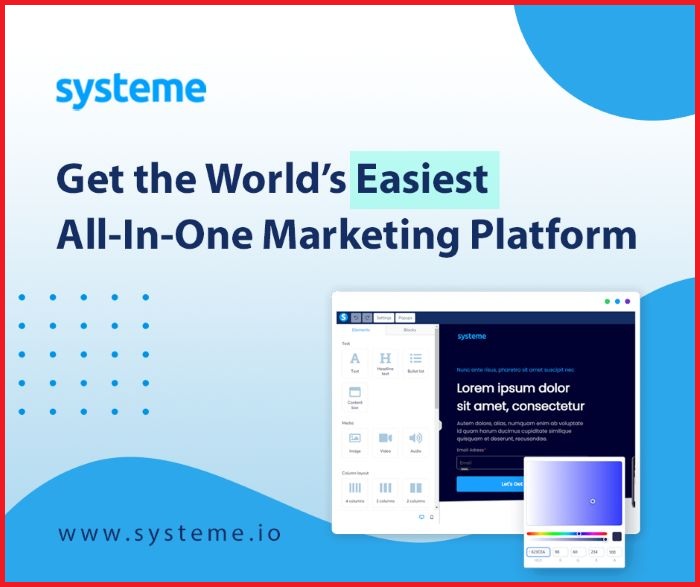Content marketing for lawyers is a powerful strategy that can set your law firm apart in a crowded market. By creating and sharing valuable content, you can connect with potential clients and showcase your legal expertise. Effective content marketing not only attracts new clients but also builds trust and long-term relationships with your audience.

When done correctly, content marketing enhances your online presence, driving more traffic to your website. This is crucial, as many legal clients begin their search for legal services online. By offering insightful articles, videos, or podcasts, you help answer potential clients’ questions, positioning your law firm as a leader in the field.
A successful content marketing plan requires understanding your audience and their needs. Whether you’re writing blog posts on new laws or sharing tips in a podcast, valuable content keeps your audience engaged and informs them about your services. Consistent and strategic content marketing can lead to increased visibility, client trust, and sustained business growth.
Key Takeaways
- Content marketing attracts and retains clients.
- It enhances your law firm’s online presence.
- Understanding your audience is crucial for success.
Understanding Content Marketing for Law Firms
Content marketing is essential for law firms to build trust, improve client engagement, and enhance their online presence. A clear strategy, knowing your goals, and understanding your audience are key components.
The Importance of Content Marketing Strategy
A well-defined content marketing strategy is vital for a law firm’s success. It involves planning and executing content that showcases your expertise, helping potential clients see your value. A strategy can include blog posts, videos, and social media updates that provide legal advice or insights. These materials help establish credibility by providing useful information, setting your firm apart from competitors. In addition, using a tailored approach ensures consistent and focused messaging, making it easier for potential clients to remember and trust your firm. Prioritizing quality content keeps your audience engaged, which can lead to higher conversion rates and more inquiries.
Setting Your Content Marketing Goals
Establishing clear content marketing goals is crucial for law firms. Define what you want to achieve with your content, such as increasing website traffic or generating more leads. Goals might also focus on boosting brand awareness or improving engagement on social media platforms. Align these objectives with measurable outcomes to track progress effectively. For example, you might aim to publish a certain number of blog posts monthly or grow your social media following by a percentage over a quarter. Having specific targets allows you to adjust your efforts based on what’s working best. This approach ensures that every piece of content serves a purpose that moves your firm closer to its overall objectives.
Defining Your Target Audience
Knowing your target audience is key to effective legal content marketing. Identify the types of clients you want to attract, such as individuals facing specific legal issues or businesses needing ongoing advice. Understand their needs, preferences, and concerns to create content that resonates with them. Use tools like surveys, client feedback, or analytics to gain insights into their behavior. Tailoring your content to your audience involves using the right language, tone, and topics that appeal to their interests. This connection makes your content more relatable and attractive, increasing the chances of converting readers into clients. Focusing on a well-defined audience ensures your efforts are efficient and impactful.
Developing a Robust Content Marketing Plan
Creating a strong content marketing plan for a legal practice begins with understanding the importance of targeted keyword research and selecting the right content types. These elements are crucial for increasing your visibility and engagement with potential clients.
Keyword Research for Legal Topics
Keyword research is critical to ensure your content reaches the right audience. Tools like Ahrefs and SEMrush can be invaluable here. Start by identifying terms that potential clients might use when searching for legal services. Focus on both broad terms like “family lawyer” and more specific phrases such as “divorce attorney for military families.”
Using a mix of high and low competition keywords can help balance visibility and ranking potential. Implement these keywords strategically throughout your content to enhance SEO effectiveness for your law firm.
Building a keyword list and regularly updating it as search trends evolve is important. This helps adjust your strategy to stay ahead in the competitive legal landscape.
Planning Your Content Types
Choosing the right content types is vital for engaging your audience. Different formats like blog posts, videos, and case studies can cater to varied client preferences. For instance, informative blog posts can establish your expertise, while videos can simplify complex legal topics.
Consider client FAQs when planning content, and address these directly through different media. Case studies showcasing successful outcomes can build trust and credibility with prospective clients. Knowing your clients’ preferences and combining different media types ensures your content strategy is comprehensive and effective.
Incorporating regular reviews and updates of your content plan ensures you meet changing client needs and industry trends, supporting a long-term strategy that continues to resonate and convert.
Creating Engaging and Valuable Content
To effectively connect with potential clients, law firms must focus on crafting content that is both engaging and valuable. This involves writing insightful blog posts, creating dynamic video content, and using educational materials to build authority in legal expertise.
Writing Effective Law Firm Blog Posts
Creating a compelling law firm blog involves understanding your audience and addressing their concerns. Start by identifying common legal questions or issues your clients face. Use clear language and real-life examples to explain complicated topics.
Structure your posts with headings and bullet points to enhance readability. Search engine optimization (SEO) techniques can also improve visibility. Regularly update your blog to stay current and relevant. Offering unique insights or perspectives on legal issues can set your blog apart, increasing engagement and building trust.
Leveraging Video Content for Engagement
Video content is a powerful tool for engaging potential clients. Explainer videos can break down complex legal concepts into easy-to-understand visuals. Use a conversational tone and animated graphics to make videos more engaging.
Platforms like YouTube or social media can broaden your reach. Keep videos concise and focused on specific topics to hold viewer attention. Consider videos that answer frequently asked questions or showcase client testimonials. Engaging videos can establish deeper connections with your audience and demonstrate your law firm’s expertise.
Utilizing Educational Content to Establish Authority
Educational content like pre-recorded webinars or detailed articles can establish your law firm as an authority in specific legal areas. Focus on topics that are meaningful to your audience, such as changes in law or significant legal trends.
Provide step-by-step guides or FAQ sections that address client questions. Offer downloadable resources like PDFs for more in-depth understanding. Educational content should showcase your firm’s expertise, reassuring clients of your ability to handle their legal needs. This approach not only educates but also builds trust and credibility with potential clients.
Optimizing Content for Search Engines
To enhance your law firm’s online presence, focus on search engine optimization (SEO) techniques. Target specific keywords, such as “law firm SEO,” and make sure your content appears prominently in search results.
Applying SEO Best Practices
SEO involves optimizing your content to rank higher in search engine results. Start with keyword research to identify terms potential clients are searching for, such as “legal advice” or “local attorneys”. Place these keywords naturally throughout your content, including in headings and subheadings.
Use meta tags and alt text for images, as these elements improve your content’s visibility. Additionally, ensure that your website loads quickly and is mobile-friendly, as Google favors sites that offer a good user experience.
Local SEO and Online Visibility
Local SEO focuses on increasing your visibility in local search results, crucial for attracting nearby clients. To achieve this, create and optimize your Google Business Profile. Include up-to-date contact information and client reviews to build trust.
Make use of local keywords, such as “lawyers in [city name],” within your content. Encourage satisfied clients to leave positive reviews, which can enhance your firm’s reputation and improve search rankings.
Evaluating Engagement Metrics and SEO Performance
To effectively measure your SEO success, track engagement metrics like page views, bounce rate, and time spent on pages. Use tools such as Google Analytics to gather data, allowing you to understand how users interact with your content.
Regularly analyze SEO performance. Identify which pages perform well and which need improvement. Consider adjusting content, keywords, or user experience to boost engagement. Monitoring these metrics ensures that your law firm’s online presence continues to attract and retain clients.
Promotion and Distribution of Content
Promoting and distributing content effectively is crucial for reaching potential clients and enhancing your law firm’s online presence. Using platforms like social media, email newsletters, and legal directories can boost engagement and visibility.
Effective Use of Social Media
Social media platforms are essential for engaging with a broad audience and sharing your content. By consistently posting valuable blog posts and updates, you can increase your firm’s visibility. Focus on platforms like LinkedIn and Facebook where legal professionals are active. Engage followers through informative posts, responding to comments, and joining relevant groups or discussions.
Creating a content calendar helps maintain consistency and ensures diverse content sharing. Using eye-catching visuals, videos, and infographics can also capture attention and encourage sharing. Don’t forget to measure engagement regularly using the platform’s analytics tools to improve your strategy.
Email Marketing and Newsletters as Outreach Tools
Email marketing is a direct way to keep clients updated and engaged with your law firm. Crafting a well-designed email newsletter containing recent blog posts and industry updates can build trust and loyalty. Segment your audience to send tailored messages that meet the interests of different client groups.
Design emails with clear calls to action, encouraging recipients to visit your website or read your latest content. Utilizing email campaigns effectively can guide clients through the content marketing funnel, turning prospects into actual clients. Use analytics to track open rates and click-through rates to continually refine your approach.
Maximizing Reach through Legal Directories and Forums
Legal directories and forums offer platforms to showcase your expertise and attract new leads. Registering your firm in popular directories enhances discoverability when potential clients search for legal services. Include detailed information about your services and links to your website and content.
Participating in legal forums allows you to engage with peers and potential clients by answering questions and sharing insights. This not only builds your reputation as a knowledgeable attorney but also directs users to your blog and other content. Be active and consistent to maximize the benefits of these channels.
Building Client Relationships through Content Marketing
Content marketing plays a crucial role in building strong client relationships by using powerful tools like client testimonials and legal insights to enhance trust and credibility. These strategies allow you to showcase your expertise and connect with potential clients on a deeper level.
Showcasing Client Testimonials and Case Studies
Client testimonials provide firsthand accounts of a law firm’s effectiveness and ability to meet client needs. They serve as personal endorsements that can greatly influence potential clients. By sharing authentic stories of successful outcomes, you create a narrative that resonates with new clients.
Case studies go a step further by illustrating detailed examples of how specific legal challenges were addressed. They offer potential clients a comprehensive view of your approach and problem-solving skills. This transparency not only highlights your legal expertise but also reassures potential clients of your capability to handle similar cases, strengthening your client relationships. Consider including a few key details such as the specific legal issue, your approach, and the outcome in each case study.
Cultivating Trust and Credibility with Legal Insights
Acting as a knowledgeable guide, providing legal insights through blogs or articles can significantly boost trust and credibility. Sharing thoughtful analysis on legal trends or recent developments demonstrates your expertise to both existing and potential clients.
By addressing common client concerns and providing clear, understandable explanations, you show that you are approachable and informed. This practice not only showcases your knowledge but also positions you as a reliable resource for legal information. Regularly updated content ensures clients see you as a firm that stays current with the ongoing changes in the legal landscape.
Measuring the Success of Your Content Marketing Efforts
To understand how well your content marketing strategy is doing, you need to track key metrics. You’ll want to focus on website traffic, conversion rates, and the return on investment (ROI) from your digital marketing efforts. This data helps in refining your approach for better results in law firm marketing.
Tracking Website Traffic and Conversion Rates
Website traffic is vital for any content marketing strategy. High traffic numbers can indicate good visibility, but you must also evaluate the quality of this traffic. You can track visitors using tools like Google Analytics. Analyze where visitors are coming from and what they do on your site.
Conversion rates are another key metric. This tells you how many visitors take the desired action, like contacting your firm or downloading a resource. Identify which pages have high or low conversion rates. If some pages have low rates, consider testing different calls-to-action or content to improve outcomes.
Use these insights to adjust your digital marketing strategy. Better targeting and content can lead to higher traffic and conversion rates, boosting the overall effectiveness of your law firm marketing efforts.
Analyzing ROI for Law Firm Marketing
ROI helps you understand the financial effectiveness of your marketing campaigns. To calculate ROI, compare the cost of your marketing efforts against the revenue it generates. This helps in deciding where to allocate resources in the future.
For a thorough analysis, consider both direct and indirect returns. Direct returns include immediate leads, while indirect returns might be increased brand awareness. Tools like CRM systems can help track client origins.
By understanding your ROI, you can optimize spending in other digital marketing areas. This makes your overall strategy more cost-effective, ensuring you’re investing in tactics that yield the best results.
Refining Your Strategy for Sustained Growth
To achieve sustained growth in legal marketing, focus on techniques like repurposing content and keeping up with digital marketing trends. These strategies help to maintain a strong presence, generate leads, and enhance brand awareness.
Repurposing Content for Maximum Impact
Repurposing content involves taking existing materials and presenting them in new formats. This maximizes your reach and keeps content fresh. For example, transform blog posts into podcasts, infographics, or videos. This not only broadens your audience but also reinforces your message across various platforms.
Think about creating a series based on a popular article. This can boost engagement and drive more visitors to your website. Infographics and videos are especially effective in breaking down complex legal concepts, making them accessible.
Staying Updated with Digital Marketing Trends
Staying informed about current digital marketing trends is crucial for maintaining effective content marketing strategies.
New trends like personalized content and AI-driven tools offer innovative ways to connect with potential clients. AI can aid in keyword creation and improving technical SEO, which can help in refining content to better align with client interests.
By following the latest changes in digital marketing, you can adjust your strategies accordingly. Keeping your approach current ensures you continue to generate leads and enhance brand awareness within the legal sector. Relevant literature, like the insights discussed by professionals at American Bar, can provide valuable guidance.
Accessibility and Compliance in Legal Content
When creating legal content, you need to focus on both accessibility and compliance. By doing this, you can reach a broader audience, including individuals with disabilities. This approach not only aligns with legal requirements but also helps you attract high-quality leads.
Web accessibility means ensuring that everyone, regardless of ability, can access and understand your legal content. The Web Content Accessibility Guidelines (WCAG) provide a useful framework for making your content accessible.
Compliance in legal content requires adherence to professional ethics and legal standards. This includes providing accurate information and avoiding misleading statements. In legal marketing, compliance is crucial to build trust and credibility.
Tips for Accessible and Compliant Content:
- Use clear, simple language and avoid unnecessary jargon.
- Ensure your website design follows accessibility standards.
- Provide transcripts or captions for multimedia content.
- Check your content for legal and ethical accuracy.
Balancing accessibility and compliance helps you effectively communicate your message while maintaining a strong reputation. This thoughtful approach not only meets the needs of your audience but also aligns with industry standards. By doing so, you increase your chances of connecting with potential clients who are searching for legal expertise.
Frequently Asked Questions
Content marketing in the legal field can be complex, yet rewarding. To succeed, you should apply strategic content approaches, know your target audience, and understand ethical guidelines.
What are the effective strategies for content marketing in the legal field?
Using a mix of quality content types like blogs, videos, and podcasts can help reach potential clients effectively. Focus on topics that showcase your expertise and address common legal concerns. Utilize search engine optimization (SEO) to enhance online visibility and engage with your audience consistently.
How can a law firm define its content pillars to enhance its marketing efforts?
Start by identifying key areas of practice and client pain points. Creating content pillars allows you to focus on themes that resonate with your audience while promoting your firm’s strengths. Regularly reviewing and updating these pillars can help maintain alignment with current legal trends and client needs.
What are the key considerations when creating content for a law firm’s target audience?
Understanding your audience’s needs and preferences is essential. Use a mix of informative and engaging content, like case studies or Q&A sessions, to build credibility. Ensure your content is easy to understand by avoiding excessive legal jargon and focusing on clear communication.
What are some successful content marketing case studies or examples within the legal industry?
Many law firms have effectively used content marketing by focusing on niche topics and local issues. For instance, providing in-depth guides on complex legal matters or offering free webinars can attract specific audiences and showcase expertise. Analyzing these successful cases can offer valuable insights.
How can lawyers ethically leverage content marketing to attract and engage clients?
Lawyers must comply with advertising regulations and ethics guidelines. It’s important to provide accurate information and avoid making guarantees. Content should be educational and helpful, building trust through transparency and integrity in all your marketing efforts.
What are the best practices for measuring the impact of content marketing on a law firm’s business growth?
Track metrics such as website traffic, engagement rates, and conversion rates to assess performance. Analyzing these data points regularly helps gauge the effectiveness of your strategies. Adjusting your approach based on insights can drive better results and support the growth of your firm.





